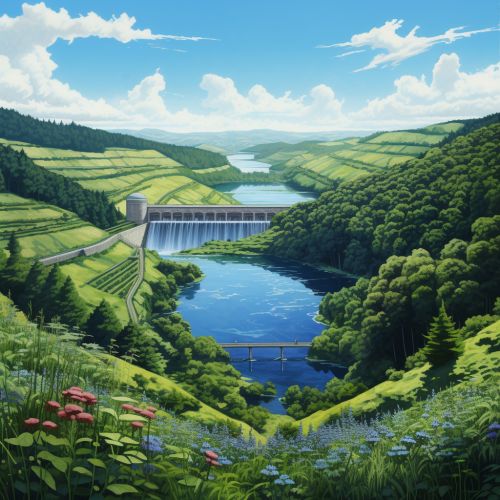Water Management
Introduction
Water management refers to the activities of planning, developing, distributing and managing the optimum use of water resources. It is a sub-set of water cycle management. Ideally, water management is to design and carry out strategies to manage human usage of water, balance fresh water resources, and ensure sustainability of vital ecosystems.
History of Water Management
The history of water management dates back to early human civilizations, which required water for agriculture and domestic chores. The ancient civilizations of Mesopotamia, Egypt, and Rome, for instance, developed sophisticated systems for managing water resources.
Water Management Techniques
There are several techniques used in water management. These include water conservation, water treatment, irrigation, and drainage. Each technique has its own set of practices, technologies, and strategies associated with it.


Water Conservation
Water conservation involves reducing the usage of water and recycling of waste water for different purposes such as cleaning, manufacturing, and agricultural irrigation. It is an important aspect of water management as it reduces the demand for water, protects the environment, and saves energy.
Water Treatment
Water treatment is the process of making water more acceptable for a specific end-use, which may be drinking, industry, irrigation or other water supply applications. Water treatment includes physical and chemical processes such as filtration, sedimentation, distillation, chlorination, and fluoridation.
Irrigation
Irrigation is the artificial application of water to land for the purpose of agricultural production. Effective irrigation will influence the entire growth process from seedbed preparation, germination, root growth, nutrient utilisation, plant growth and regrowth, yield and quality.
Drainage
Drainage is the natural or artificial removal of surface and sub-surface water from an area. Many agricultural soils need drainage to improve production or to manage water supplies.
Challenges in Water Management
Water management faces several challenges including water scarcity, pollution, a changing climate, and population growth. These challenges require new approaches and solutions in water management to ensure water security and meet the increasing demand for water.
Future of Water Management
The future of water management lies in the development and implementation of sustainable practices. This includes the use of advanced technologies such as remote sensing, GIS, and artificial intelligence in water management.
